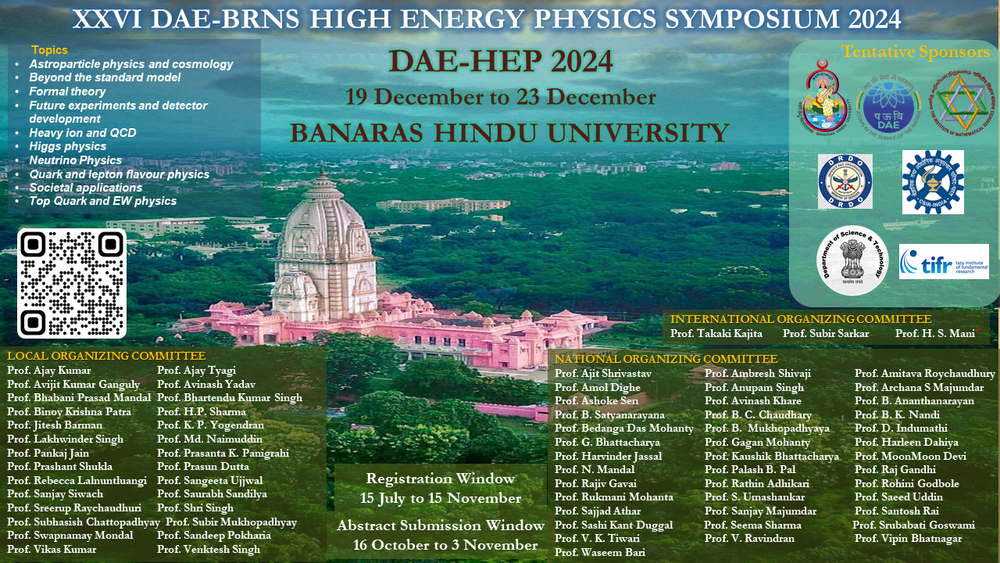Speaker
Description
In the present study, we explore the phenomenon of spin alignment of $\phi$ and $K^{*0}$ vector mesons, as recently observed by the ALICE and STAR collaborations. While a range of sources could potentially contribute to this phenomenon, it is hypothesized that the primary influences are the vorticity and electromagnetic fields, which align with the qualitative description of global polarization data for $\Lambda$ hyperons. Contrary to this, the quark combination model suggests that the impact of these fields on the spin alignment of $\phi$ and $K^{*0}$ mesons should be less pronounced than that on $\Lambda$ hyperons polarization. This prediction stands in contradiction to recent experimental findings. Notably, the large spin alignment of $\phi$ mesons is attributed to a strong vector meson force field, indicating that quarks become polarized when interacting with a dense medium via a strong force. This reasoning, however, is unable to explain the spin alignment of $J/\psi$ observed in experiments, thus highlighting a gap in our understanding of vector meson spin alignment. In light of these observations, our work aims to shed light on the spin alignment mechanisms of vector mesons by examining two distinct hadronization processes: quark recombination and fragmentation, involving polarized quarks and antiquarks. We specifically investigate the influence of magnetic fields and medium momentum-space anisotropy on the spin-alignment observable, namely the $00^{th}$-component of the spin-density matrix ($\rho_{00}$), for $\phi$, $K^{*0}$, and $\rho$ spin-1 mesons. Our findings reveal that $\rho_{00}$ is inversely related to medium anisotropy and directly related to the strength of the magnetic field, providing a qualitative explanation for the experimental data observed. This study advances our understanding of spin dynamics in vector mesons and highlights the complex interplay between magnetic field, medium anisotropy, and hadronization processes in shaping such phenomena.
| Field of contribution | Theory |
|---|

